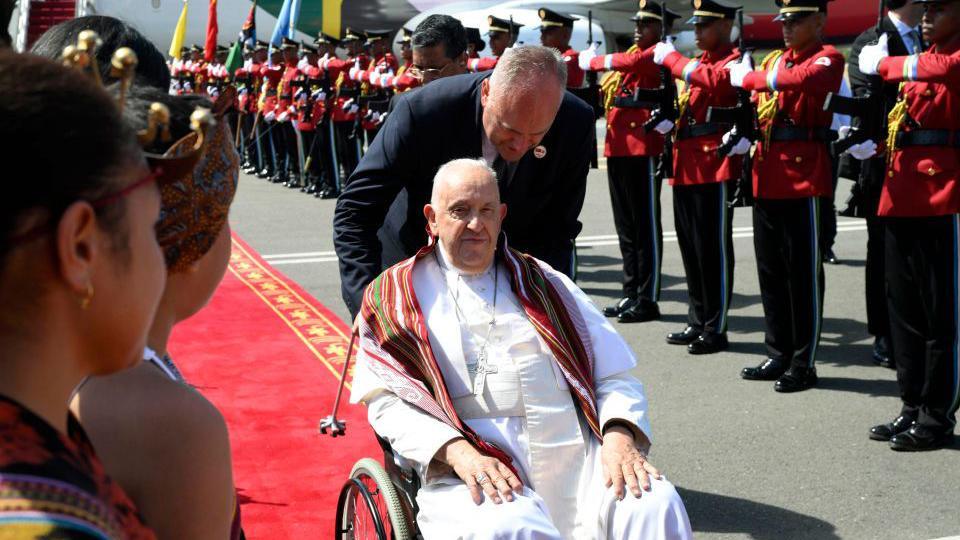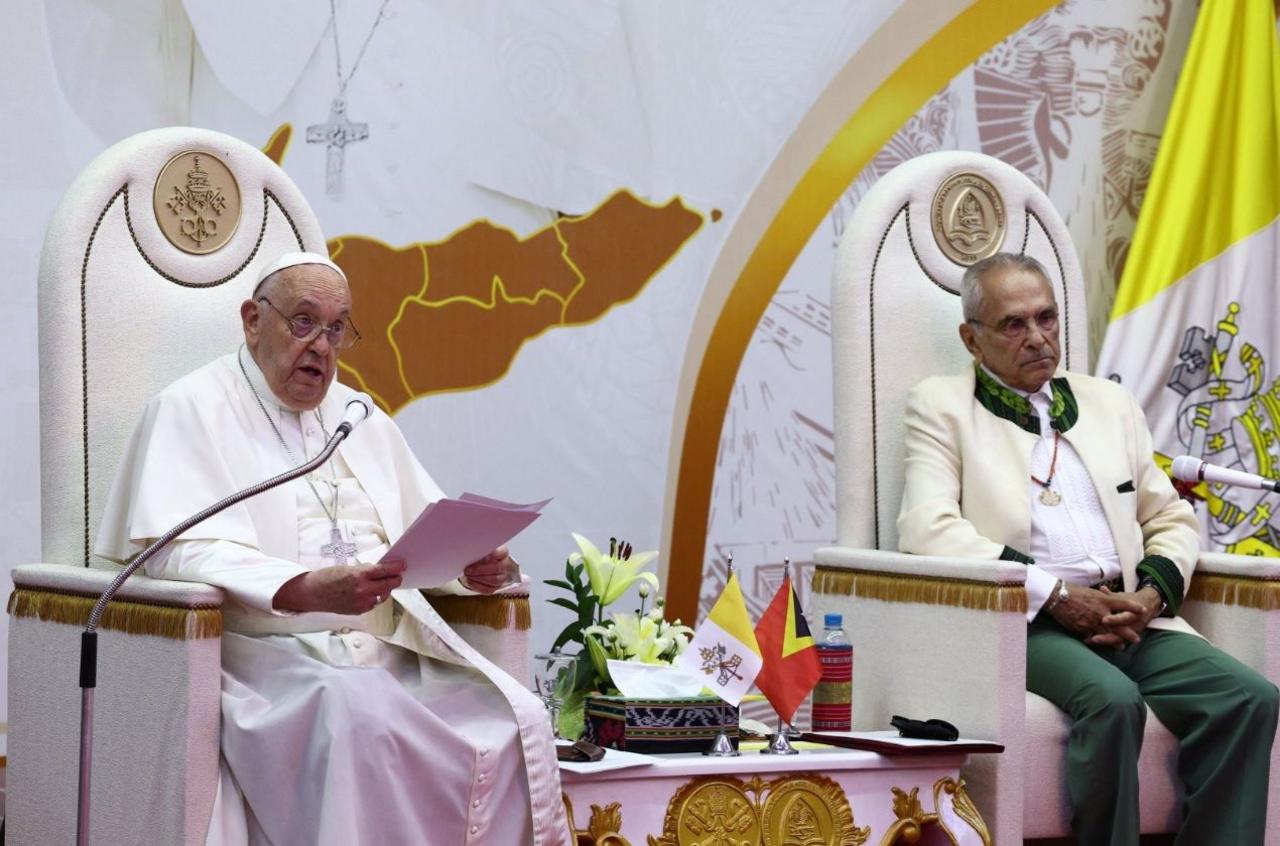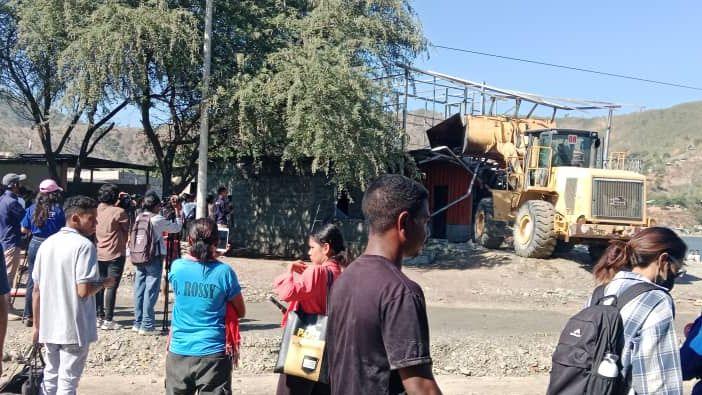Pope calls on Timor-Leste to protect young from abuse

Timor-Leste is the third stop in the Pope's 12-day Asia-Pacific tour
- Published
Pope Francis has called on young people to be protected from abuse, as he arrived in Timor-Leste on the latest leg of his tour of south-east Asia and Oceania.
The Pontiff landed in the capital Dili on Monday, where he told officials: "Let us not forget the many children and adolescents whose dignity has been violated."
He then called on people to do "everything possible to prevent every kind of abuse and guarantee a healthy and peaceful childhood for all young people".
While the Pope did not mention a specific case, his visit comes after a prominent East Timorese bishop, hailed as an independence hero, was accused of sexually abusing young boys in the country during the 1980s and 90s.
A Vatican spokesman earlier said the Church had been aware of the case against Nobel Peace Prize-winning Bishop Carlos Ximenes Belo in 2019 and had imposed disciplinary measures in 2020, including restrictions on Belo’s movements and a ban on voluntary contact with minors.
In an open letter, the Survivors Network of those Abused by Priests in Oceania said there had "still not been redress for the victims" and called on Pope Francis to use Church money to pay compensation to them.
According to his official schedule, the Pope will not meet with victims and it is not clear whether Bishop Belo will appear alongside him in Dili.
The pontiff also used his speech to praise the country - formerly known as East Timor - for their new era of "peace and freedom", two decades after it achieved independence from neighbouring Indonesia.
"We give thanks to the Lord, since you never lost hope while going through such a dramatic period of your history, and after dark and difficult days, a dawn of peace and freedom has finally dawned," he said.

Pope Francis delivers a speech next to East Timor's President Jose Ramos-Horta
Before delivering his speech, tens of thousands of devotees lined the streets, cheering and waving flags as he was driven in an open-top car flanked by security.
Timor-Leste is the only Catholic-majority country the pontiff is visiting as part of his 12-day Asia-Pacific tour.
Around 700,000 people - more than half of Timor-Leste's entire population - are expected to attend an open-air mass that the Pope will celebrate near Dili on Tuesday.
Authorities have also demolished homes and evicted dozens of people in the area where the mass will be held, in a move which has attracted strong criticism from local residents.
"They even demolished our belongings inside the house. Now we have to rent nearby because my children are still in school in this area,” Zerita Correia previously told BBC News.
The homes are located in Tasitolu, a wetland area just outside the capital. Over the past decade, hundreds of people moved there from rural parts of the country.
Many came looking for work in the capital and built basic homes in the area. The government says they are squatting and have no right to live on the land.
Speaking to the BBC, a government minister said that residents were made aware of plans to clear the area in September 2023.

The government has decided to clear the area
Critics in Timor-Leste have also questioned the decision to spend such large amounts of money on the visit - including US$1m (£762,000) on a brand new altar.
According to the UN, nearly half of the population of Timor Leste currently lives below the national poverty line.
This is the first papal trip to Timor-Leste since Pope John Paul II visited in 1989, when the country was still under Indonesian occupation.
When Indonesia invaded the former Portuguese colony in 1975, only around 20% of East Timorese people were Catholic. That figure now stands at 97%.
The Pope was previously in Papua New Guinea, where around a quarter of its inhabitants describe themselves as Catholic and Indonesia, where that figure is 3%.
Pope Francis will finish his tour in the region in Singapore later this week.
Additional reporting by Amito Araújo in Dili